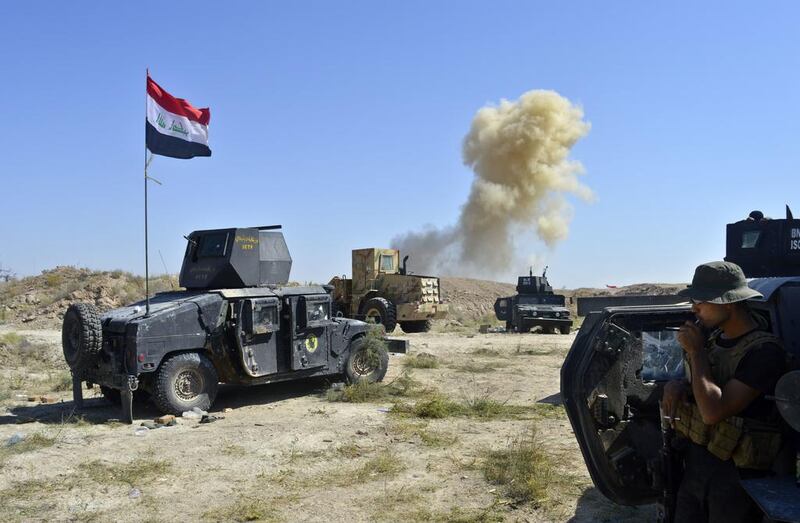CAMP TARIQ, IRAQ // Iraqi forces battling their way into Fallujah repelled a four-hour counterattack by ISIL on Tuesday, a day after entering the southern part of the extremist-held city.
It came as leading aid group the Norwegian Refugee Council raised alarm over the unfolding “human catastrophe” in Fallujah, where an estimated 50,000 people remain trapped. It renewed calls on warring parties to open up safe corridors for civilians to flee.
The dawn attack unfolded in Fallujah’s Nuaimiya area, most of which was captured by Iraqi troops on Monday, according to two special forces officers.
ISIL fighters used tunnels and snipers, along with six explosives-laden cars that were destroyed before reaching their targets, the officers said. Iraqi forces suffered casualties, but the officers didn’t provide details.
Monday’s push into Nuaimiya, a sprawling agricultural area, was the first attempt by Iraqi forces to enter Fallujah, which fell to ISIL in January 2014. In recent days Iraqi forces had focused on driving the militants from outlying areas to tighten a siege on the city.
The clashes in Nuaimiya had subsided by Tuesday afternoon, but the officers said further progress was slowed by roadside bombs planted by ISIL. The troops also paused to destroy tunnels in the area. The officers said 106 extremists had been killed since Monday.
Fallujah was the first Iraqi city to fall to ISIL and is the last major urban area controlled by the extremist group in western Iraq. The militants still control the country’s second largest city, Mosul, in the north.
US-led coalition air strikes and Iranian-backed Shiite paramilitary forces are helping the Iraqi army in the battle to retake Fallujah. But the fight is expected to be protracted, as the extremists have had more than two years to dig in. Tens of thousands of civilians remain trapped in Fallujah and hidden bombs are believed to be strewn throughout the city.
“A human catastrophe is unfolding in Fallujah,” Jan Egeland, head of the Norwegian Refugee Council said, adding that only one family had managed to escape from the city on Monday.
“Warring parties must guarantee civilians safe exit now, before it’s too late and more lives are lost,” Mr Egeland added. The NRC said a lack of food, medicine, safe drinking water and electricity in the city is “pushing families to the brink of desperation”.
The spokesman of the UN’s refugee agency, William Spindler, said on Tuesday that 624 families – or around 3,700 individuals – had fled over the past week, citing figures by Iraqi authorities.
Mr Spindler said the UNHCR “understands another 500 men and boys over 12 years old are [being] held for security screening”, which can take five to seven days.
“We understand some 27 men were released” on Monday, he said.
Meanwhile, the Organisation of Islamic Cooperation – the world’s largest body of Muslim-majority countries – expressed “deep concern” for the safety of civilians in Fallujah. The head of the 56-nation organisation expressed its opposition to sectarian violence, as well as support for the Iraqi government.
Some Sunni lawmakers in Iraq have accused the Iraqi security forces of using indiscriminate force in their campaigns against ISIL and say Shiite militias have committed abuses against civilians in mainly Sunni towns and cities. The government-sanctioned umbrella group of mostly Shiite militias is not taking part in the current push into Fallujah, according to officials.
* Associated Press





